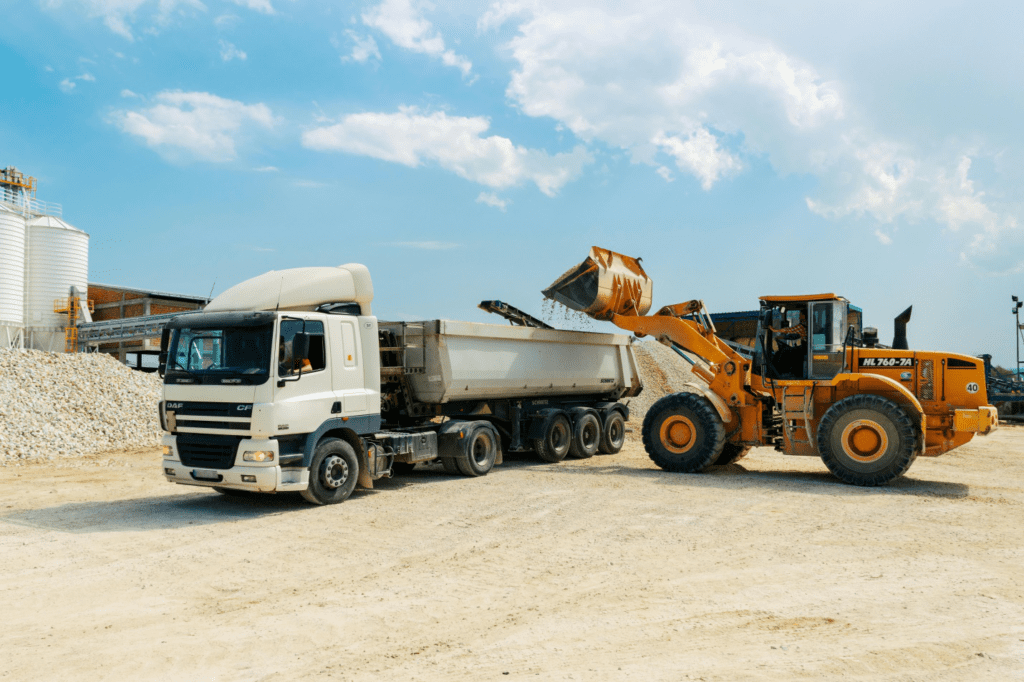In the world of heavy-duty hauling, dump trucks stand as the workhorses of construction and mining operations. However, the improper securing of loads in dump trucks can pose significant risks, leading to accidents, injuries, and damage to property. In this blog, we will delve into the importance of securing dump truck loads and explore the best practices to ensure safe transport and operations.
The Risks of Inadequate Load Securement
Dump trucks are designed to carry heavy and often loose materials, making them susceptible to load shifting during transportation. When loads are not properly secured, it can result in a variety of hazards, including:
Instability: Unsecured loads can lead to an imbalanced truck, causing instability during acceleration, deceleration, or turns.
Spillage: Loose materials can spill onto roadways, creating dangerous conditions for other drivers and pedestrians.
Equipment Damage: Load shifting can damage the dump truck itself, leading to maintenance issues and increased operational costs.
Legal Consequences: Failure to comply with load securement regulations may result in fines, legal liabilities, and damage to the trucking company’s reputation.
Best Practices for Dump Truck Load Securement
To ensure safe transport and minimize the risks associated with load shifting, dump truck operators should follow these best practices for load securement:
Know the Load Limits: Before loading materials onto the dump truck, it is crucial to understand the truck’s weight capacity and adhere to legal load limits. Overloading can significantly increase the risk of accidents and damage.

Use Appropriate Restraints: Employing the right restraints is essential for securing loads. Common methods include tarps, straps, chains, and binders. Choose materials that are durable, weather-resistant, and appropriate for the type of load being transported.
Inspect Equipment Regularly: Conduct thorough inspections of all load securement equipment before each trip. Check for any signs of wear, damage, or corrosion in straps, chains, and binders. Promptly replace any faulty equipment to maintain optimal load security.
Proper Loading Techniques: Distribute the load evenly within the truck bed to maintain balance. Use dividers or dunnage to prevent materials from shifting during transit. Avoid overloading one side of the truck, as it can lead to tipping hazards.
Secure Tailgates: Ensure that tailgates are securely latched before moving the truck. Unsecured tailgates can open during transit, causing materials to spill onto the road.
Utilize Truck Bed Liners: Installing bed liners can prevent materials from sticking to the bed, making it easier to unload and reducing the risk of load shifting.
Follow Regulations: Familiarize yourself with local, state, and federal regulations regarding load securement. Compliance with these regulations not only ensures safety but also helps avoid legal complications.
Driver Training: Provide comprehensive training for dump truck operators on proper load securement procedures. Emphasize the importance of regular inspections and adherence to safety protocols.
Enhance your dump truck fleet’s safety with BedLock Safety Products. Explore our range of accurately engineered safety solutions, including truck bed locks, dump bed safety support, and dump body safety stands. Elevate your dump truck’s reliability on the road with BedLock – Illinois’s leading provider of top-notch truck repair and safety equipment. Explore our store now for unparalleled quality and competitive rates.
